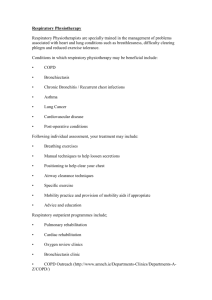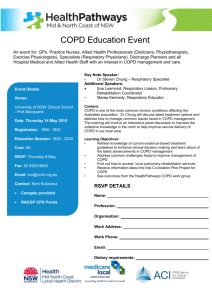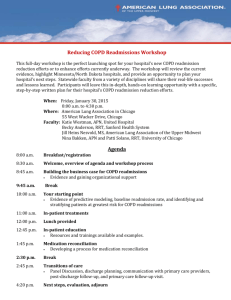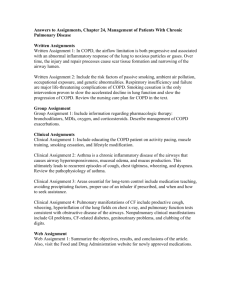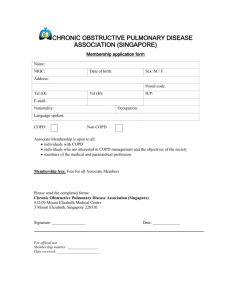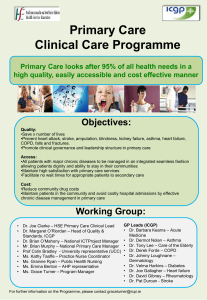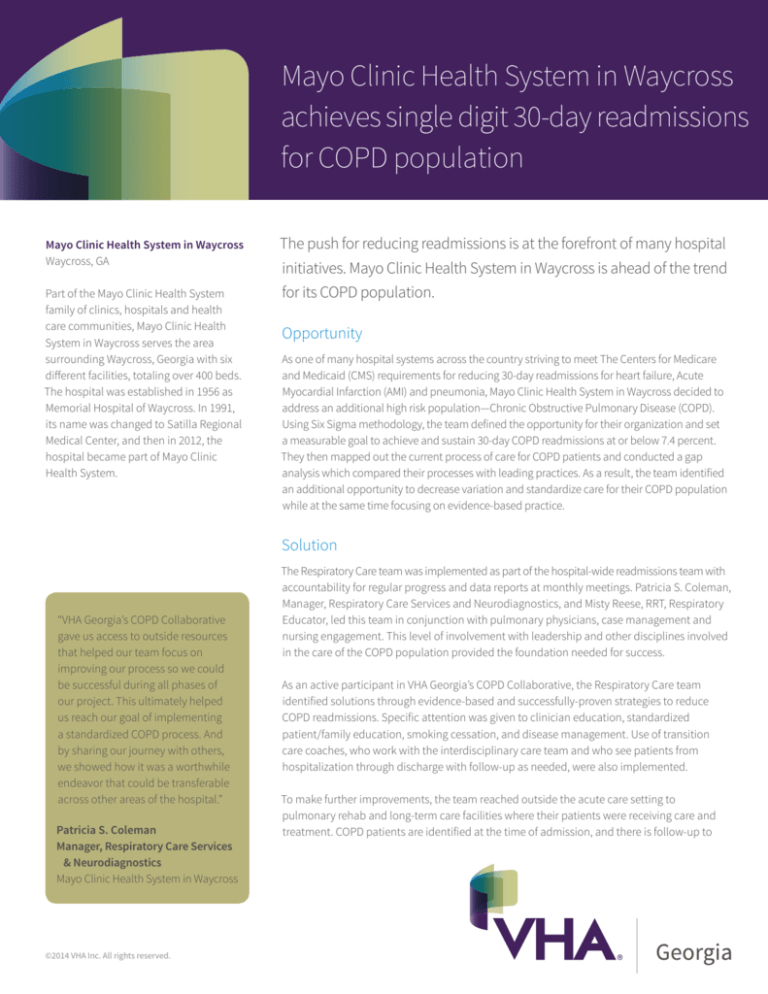
Mayo Clinic Health System in Waycross
achieves single digit 30-day readmissions
for COPD population
Mayo Clinic Health System in Waycross
Waycross, GA
Part of the Mayo Clinic Health System
family of clinics, hospitals and health
care communities, Mayo Clinic Health
System in Waycross serves the area
surrounding Waycross, Georgia with six
different facilities, totaling over 400 beds.
The hospital was established in 1956 as
Memorial Hospital of Waycross. In 1991,
its name was changed to Satilla Regional
Medical Center, and then in 2012, the
hospital became part of Mayo Clinic
Health System.
The push for reducing readmissions is at the forefront of many hospital
initiatives. Mayo Clinic Health System in Waycross is ahead of the trend
for its COPD population.
Opportunity
As one of many hospital systems across the country striving to meet The Centers for Medicare
and Medicaid (CMS) requirements for reducing 30-day readmissions for heart failure, Acute
Myocardial Infarction (AMI) and pneumonia, Mayo Clinic Health System in Waycross decided to
address an additional high risk population—Chronic Obstructive Pulmonary Disease (COPD).
Using Six Sigma methodology, the team defined the opportunity for their organization and set
a measurable goal to achieve and sustain 30-day COPD readmissions at or below 7.4 percent.
They then mapped out the current process of care for COPD patients and conducted a gap
analysis which compared their processes with leading practices. As a result, the team identified
an additional opportunity to decrease variation and standardize care for their COPD population
while at the same time focusing on evidence-based practice.
Solution
“VHA Georgia’s COPD Collaborative
gave us access to outside resources
that helped our team focus on
improving our process so we could
be successful during all phases of
our project. This ultimately helped
us reach our goal of implementing
a standardized COPD process. And
by sharing our journey with others,
we showed how it was a worthwhile
endeavor that could be transferable
across other areas of the hospital.”
Patricia S. Coleman
Manager, Respiratory Care Services
& Neurodiagnostics
Mayo Clinic Health System in Waycross
©2014 VHA Inc. All rights reserved.
The Respiratory Care team was implemented as part of the hospital-wide readmissions team with
accountability for regular progress and data reports at monthly meetings. Patricia S. Coleman,
Manager, Respiratory Care Services and Neurodiagnostics, and Misty Reese, RRT, Respiratory
Educator, led this team in conjunction with pulmonary physicians, case management and
nursing engagement. This level of involvement with leadership and other disciplines involved
in the care of the COPD population provided the foundation needed for success.
As an active participant in VHA Georgia’s COPD Collaborative, the Respiratory Care team
identified solutions through evidence-based and successfully-proven strategies to reduce
COPD readmissions. Specific attention was given to clinician education, standardized
patient/family education, smoking cessation, and disease management. Use of transition
care coaches, who work with the interdisciplinary care team and who see patients from
hospitalization through discharge with follow-up as needed, were also implemented.
To make further improvements, the team reached outside the acute care setting to
pulmonary rehab and long-term care facilities where their patients were receiving care and
treatment. COPD patients are identified at the time of admission, and there is follow-up to
“Never underestimate the power of networking. It is important to
collaborate with others and not be siloed. That way, you will get a
better picture of what is going on around the hospital and in your
surrounding community.”
Misty Reese, RRT
Respiratory Educator, Mayo Clinic Health System in Waycross
ensure that the standardized education process is implemented
and that they use the behavioral change methods learned through
training with COPD Collaborative partners, GlaxoSmithKline. The
Respiratory Care team also developed a COPD protocol which
was tested and implemented at one of the affiliated nursing
homes where they were able to provide awareness, education
and a solution on how to manage COPD patients who become
symptomatic versus immediately sending them to the hospital
emergency room, which many times ended up as a readmission.
Results
At the beginning of the project, COPD readmission rates fluctuated
monthly – anywhere from 0 to 18 percent. After assessing the
current processes within the care and discharge of the COPD
population, there were several areas that required adjustments to
standardize for improved outcomes. With those in place, the team
began to see a steady decrease in COPD readmissions.
As they continue their improvement journey to achieve 7.4 percent
or better for 30-day COPD readmissions, the Respiratory Care team
has shared their success with other Mayo Clinic facilities—most
recently Mayo Clinic in Rochester, Minnesota. They provided an
overview of their program to help the staff in Rochester have a
better understanding of the components required for success,
including using outside resources when available and working as a
team to achieve their goals and deliver results.
The Respiratory Care team was invited to present in Rochester
because they had the lowest COPD readmission rate throughout
the network of Mayo Clinic hospitals, and the Rochester-based
hospital wanted them to share their journey. From that experience,
the team learned that even though they had success, the
COPD initiative is an ongoing process and that networking and
collaborative learning are powerful tools that can further improve
their process.
With a single digit mean 30-day readmission rate for COPD of 9.2
percent to date, the Respiratory Care team is well on their way
to achieving their 7.4 percent goal. They have also increased the
volume of referrals and visits to pulmonary rehab by 43 percent,
which also has had a positive impact on reducing readmissions.
The hospital’s real success, however, is attributed to leadership
support, an accountability structure, and a collaboration with
leading performers and others addressing similar opportunities.
Their multidisciplinary team approach, including hospital and
post-acute services, standardized processes for recognizing COPD
patients early in admission and addressing their individual needs
throughout hospitalization and discharge follow-up, has also
proven to be beneficial.
For more information, contact us at 770.850.7400 or
vhagainfo@vhageorgia.com.
©2014 VHA Georgia, Inc. All rights reserved.
Next steps include the Respiratory Care team making a presentation
in October to another Mayo Clinic facility in Arizona.

